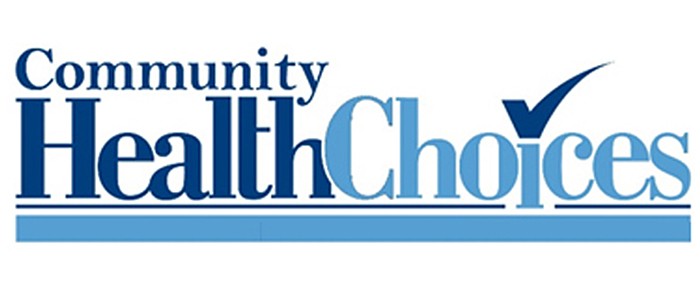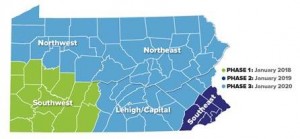Cabinet in Your Community Event
Join the discussion with members of Governor Wolf’s Cabinet to talk about issues important to you and your community!
Budget Request to Governor Wolf
Senate Committee Passes HB 478 – Outpatient Psychiatric Oversight Act
Today, the Senate Health and Human Services Committee unanimously passed HB 478, the Outpatient Psychiatric Oversight Act. The bill now moves to the Senate floor. As background, RCPA and its members have been working on getting the Department of Health and Human Services (DHS) to move the outpatient psychiatric regulations, which have been promulgated for more than three years.
Over the past few months, DHS has taken steps to move the outpatient regulations towards completion. RCPA supports DHS’ efforts to move this package of regulations; however, because of the length of time it has taken to move the regulations, certain provisions contained within the regulation package are antiquated or need to be updated to current outpatient service delivery standards.
Specifically, the psychiatric recruitment crisis has grown exponentially, especially in rural areas. By introducing HB 478, Rep. Pickett (R–Bradford, Sullivan, and Susquehanna Counties), the prime sponsor of the bill, has taken legislative action to update sections within the outpatient psychiatric regulation package to current outpatient service delivery standards, and to start implementing these updates immediately through this legislation.
In short, HB 478 provides that:
- An outpatient psychiatric clinic needs to have a psychiatrist on site for two hours of psychiatric time per week for each full-time equivalent treatment staff member employed by the clinic;
- Tele-psychiatry can be utilized by a psychiatrist, who has prescriptive authority in Pennsylvania and is not on site. The Department of Human Services will have to approve a service description;
- 50 percent of the required on-site time may be provided by other advanced practice professionals specializing in behavioral health with prescriptive authority in Pennsylvania; and
- The Department of Human Services will promulgate regulations as necessary to carry out the provisions of the act.
RCPA believes that Rep. Pickett’s bill, HB 478, will allow psychiatrists to see more clients in a timely fashion and ultimately increase access to psychiatric services, which is vital due to the shortage of psychiatrists in the Commonwealth.
As the bill moves through the process, RCPA will keep members informed. Contact Jack Phillips, RCPA Director of Government Affairs, with any questions.
Executive Order to Review State Licensure Board Requirements & Processes
Executive Order to Review State Licensure Board Requirements & Processes
In the November 11, 2017 Pennsylvania Bulletin, Governor Wolf issued an Executive Order (No. 2017-03) that directs the Commissioner of Professional and Occupational Affairs within the Department of State to conduct a review of the State Professional and Occupational Licensure board requirements and processes. This includes a comprehensive review of the processes, fees, training, and continuing education requirements and prepared report for each type of professional and occupational license. The report is to include: training requirements; licensing, registration, and renewal fees; continuing education requirements; and any other requirements described within the executive order. The report is to also include information regarding the number of other states which require a license for each professional or occupational license, the national and regional averages for training requirements, fees, and continuing education requirements.
The Commissioner has been given the authority to establish an advisory group to assist with the research, data collection, and formatting of the reports, and any other function the Commissioner deems necessary. The advisory group shall be composed of members chosen by the Commissioner from the professional Boards and Commissions, Bureau of Professional and Occupational Affairs (BPOA) staff, and any other persons the Commissioner deems necessary. The advisory group must be established within 30 days from the effective date of this executive order. Additional details regarding the report are provided in the bulletin.
The report is due to the Governor, the Secretary of Policy and Planning, and the Secretary of the Commonwealth no later than 180 days from the establishment of the advisory group or 210 days from the effective date of this executive order, whichever is sooner.
Some of the boards impacted by this executive order include: State Board of Physical Therapy, State Board of Speech–Language Pathology and Audiology, the State Board of Medicine, the State Board of Nursing, the State Board of Occupational Therapy, etc.
The executive order is effective immediately.
Lawmakers Applaud Measure Creating Trust Fund for Youth Impacted by Prison System
Community HealthChoices Timeline Update
From: DHS STAKEHOLDERS – On Behalf Of HS, Secretary’s Office
Sent: Monday, November 06, 2017 12:00 PM
Subject: [DHS-STAKEHOLDERS] Community HealthChoices Update
The Wolf Administration is committed to providing access to high-quality services to all Pennsylvanians and to serving more people in the community.
Community HealthChoices (CHC) is the commonwealth’s program for older Pennsylvanians and individuals with physical disabilities to use health plans to provide coordinated physical health care and long-term services and supports. The goals of CHC are to improve quality of services and the health care experience – serving more people in their communities rather than in facilities, giving them the opportunity to work, spend more time with their families, and experience an overall better quality of life.
CHC is being implemented in three phases. For Phase 1, notices have been mailed to participants in the 14 counties in the Southwest Zone to inform them that they will move to CHC on January 1, 2018. Participants are currently learning more about CHC through community meetings and the independent enrollment broker. Phase 1 is expected to include approximately 80,000 people.
CHC is about choice – choice in where a person wants to live and choice in who will provide the care needed to make that a reality. Even though the deadline for Phase 1 participants to select a managed care organization (MCO) is not until November 13, 2017, more than 21,500 people have already made an active choice by already selecting their health plan and their primary care provider.
Recognizing how critical these services are, we are focused on getting this right – the health care coverage for 420,000 Pennsylvanians depends on it.
We are confident that the southwest is ready for Phase 1, but in order to allow for the deliberate and purposeful implementation of CHC in the southeast region (Phase 2) and the remainder of the state (Phase 3) we need to have the flexibility of learning from that roll out with proper time to make any needed adjustments.
Given this, the commonwealth has decided to shift the implementation dates for the next two phases of CHC. The new start dates are as follows:
- Phase 2 will now begin on January 1, 2019, instead of July 1, 2018
- Phase 3 will now begin on January 1, 2020, instead of January 1, 2019
These new dates will allow us to provide Pennsylvanians eligible for CHC with a health plan that will give them better access to health care. Our commitment to CHC is unwavering and we look forward to continuing to work with you in preparation for January 2018’s Phase 1 rollout.
Regards,
Teresa Miller
Department of Human Services, Acting Secretary
Teresa Osborne
Department of Aging, Secretary
Community HealthChoices Eligibility Info Issued by OMHSAS
As the implementation of Community HealthChoices (CHC) approaches the January 1, 2018 launch in the Southwest Region, the Department of Human Services (DHS) has developed informational materials for those individuals who will be covered by the new program. The documents, including notices and the pre-enrollment packet, are posted on the DHS website, where you will also find their most recent participant document, “CHC: Here’s What You Need to Know” (available for download in English and Spanish).
In addition, a document designed to clarify eligibility for CHC is available here. It includes the following information:
Individuals are NOT eligible for CHC if they are a person with an intellectual or developmental disability who is eligible for services through the Department of Human Services’ Office of Developmental Programs (ODP), OR are a resident in a state-operated nursing facility, including state veterans homes.
Please visit the CHC website or call the CHC Provider Hotline at 833-735-4417 with any questions.
DHS Staffing Changes
Pennsylvania Acting Secretary of Human Services Teresa Miller announced the following three staffing changes within the Department of Human Services (DHS):
- Executive Deputy Secretary. Leesa Allen, currently DHS’ Deputy Secretary for Medical Assistance Programs, will be moving into the Executive Deputy Secretary position. Ms. Allen has more than 23 years of experience in the Commonwealth in positions ranging from children and youth case worker to Chief of Staff for the Office of Medical Assistance Programs (OMAP). She will continue to support OMAP until her replacement is found.
- Chief of Staff. Johanna Fabian-Marks will serve as DHS Chief of Staff. Ms. Fabian-Marks is coming from the Pennsylvania Insurance Department where she serves as the Special Deputy and Director of Life, Accident, and Health Insurance Product Regulation. Prior to joining the Insurance Department, she worked on implementation of the Affordable Care Act at the Center for Consumer Information and Insurance Oversight at the federal Centers for Medicare and Medicaid Services.
- Deputy Secretary, Office of Mental Health and Substance Abuse Services (OMHSAS). Lynn Kovich will become the new OMHSAS Deputy Secretary on November 13. Ms. Kovich has 26 years of experience in direct services and administration in both the nonprofit and government sectors, working with individuals who have developmental disabilities, mental illness, and substance use disorders, as well as those experiencing homelessness.
RCPA congratulates each of these individuals and commits to working with them in a constructive manner to advance the best interests of our shared constituencies.
DHS “The Impact” — Prioritizing Children’s Health Care
The Pennsylvania Department of Human Services sends weekly updates via “The Impact,” a newsletter about positively impacting the lives of Pennsylvanians. Here is the October 11, 2017 issue, focused on Children’s Services —

















